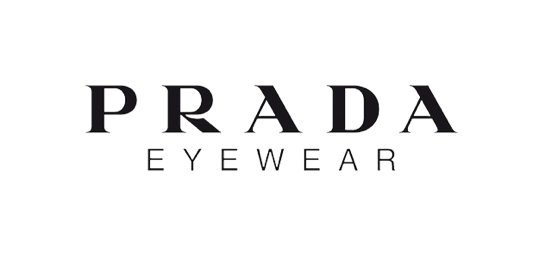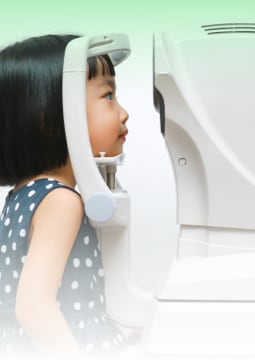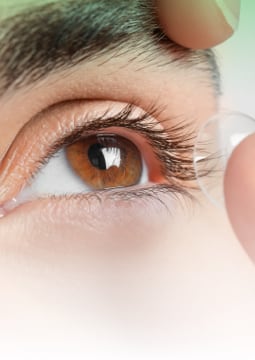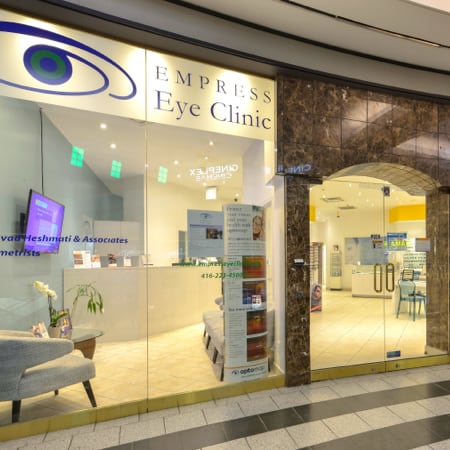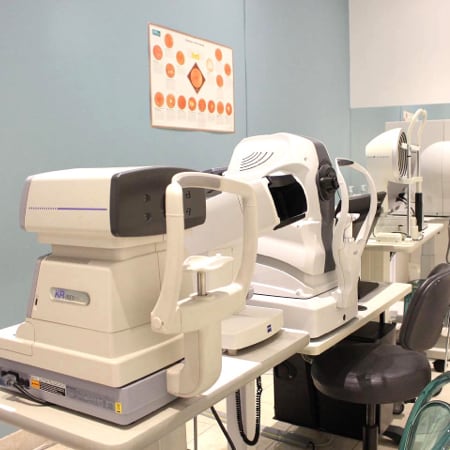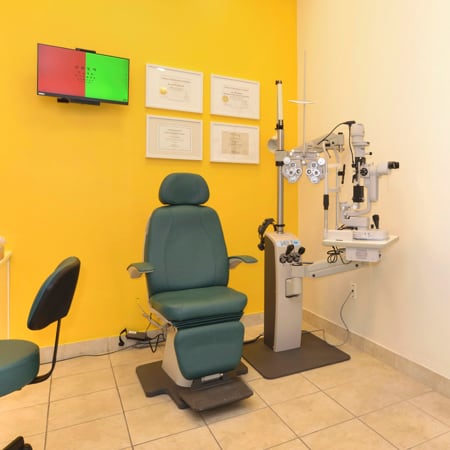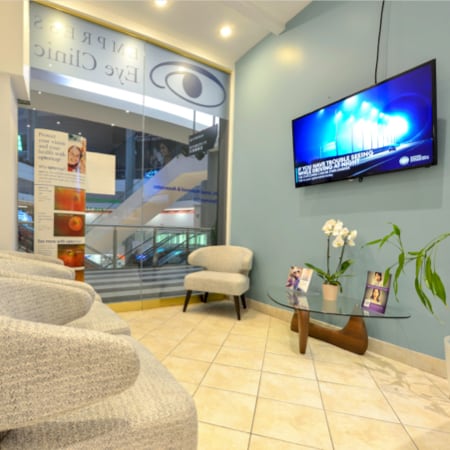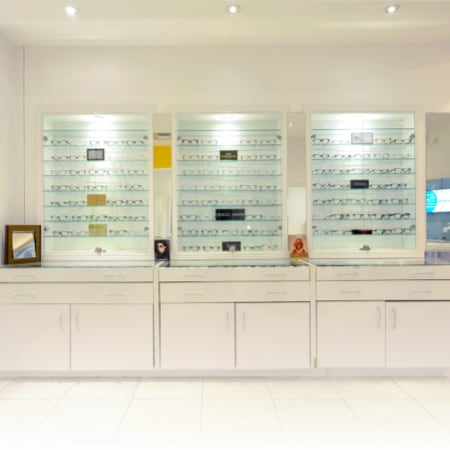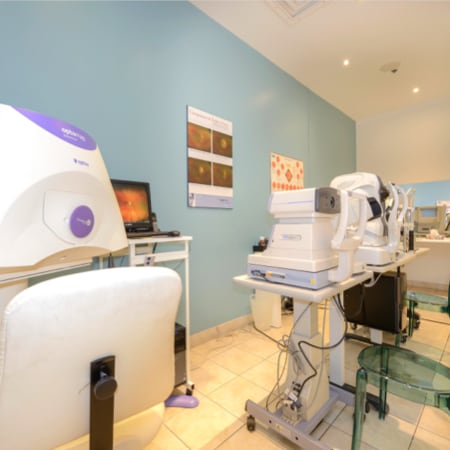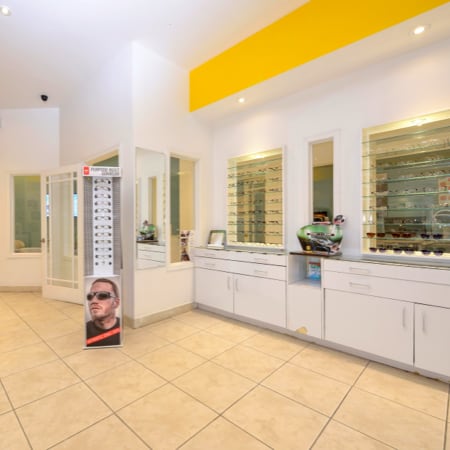With decades of experience and a commitment to utilizing cutting-edge, non-invasive technology, our dedicated eye doctors at Empress Eye Clinic ensure the best possible and most convenient care for our patients.
Protect Your Vision
Eye diseases can cause permanent damage to your eyesight and can develop for a long time without showing any symptoms. Unfortunately, this means that often it can be nearly impossible for you alone to detect eye diseases.
This is why it’s critical to receive regular comprehensive eye exams. At Empress Eye Clinic, we will always do everything we can to check for potential signs before your symptoms become anything serious.
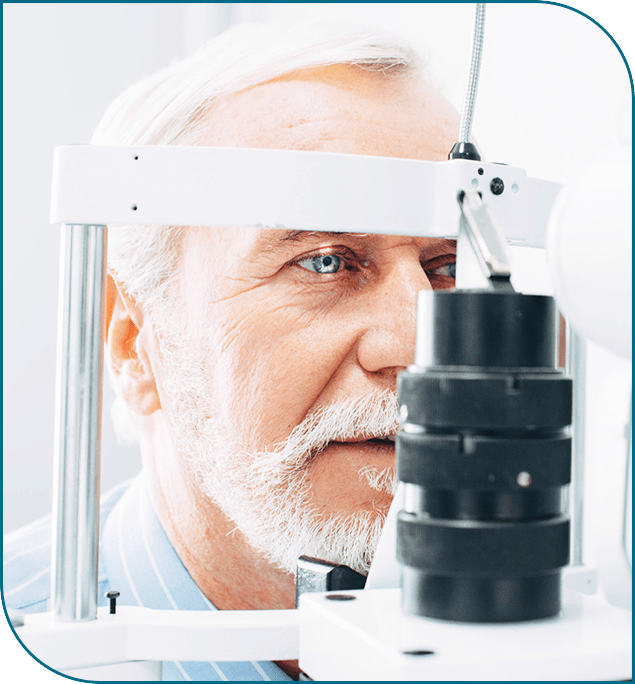
Symptoms to Watch For
If you experience any of the following symptoms, please come in to see us:
- Eye pain in or around the eye
- Changes in your vision, including blurred vision or double vision
- Seeing flashes of light or halos around lights
- Unusual sensitivity to light or glare
- Eye redness
- Changes in the colour of the eye
- Itching, burning, or a heavy discharge in the eyes
Common Eye Diseases & Conditions
Eye diseases can develop from a variety of factors and can present a range of symptoms. The following eye conditions are some of the most common causes of vision loss and damage:
Diabetic Retinopathy
Diabetic retinopathy is a common eye disease found in people who have diabetes. An increase in blood sugar levels can damage the blood vessels in the eyes, causing vision impairment and loss.
Age-Related Macular Degeneration
Age-related macular degeneration (AMD) is an eye disease that affects the macula, which is crucial for clear central vision. If AMD is left untreated, it can result in blurred vision or sight loss.
Macular degeneration is a degenerative eye disease that affects the central retina (the macula) and damages the macula’s cells, causing deterioration of central vision.
Risk Factors
-Genetics that could present at a younger age (for example, Stargardt)
-Age-related Macular Degeneration (AMD) usually occurs in patients over 50 years and increases with aging.
-Smoking.
Symptoms of Macular Degeneration
- Blurred vision
- Distorted vision
- A black patch in the centre of the vision
- Difficulty reading
Diagnosis of Macular Degeneration
- Retinal examination
- Ocular coherence tomography (OCT)
- Genetic Test
Types of Macular Degeneration
Dry Macular Degeneration
Dry macular degeneration usually progresses slowly over time. Unfortunately, there is no proven treatment yet; a new laser, the 2RT laser, has shown promising results, but further studies are needed.
Dry macular degeneration increases the risk of developing wet macular degeneration. Regular monitoring with the Amsler grid is needed.
Wet Macular Degeneration
Wet macular degeneration is more aggressive. It is caused by an abnormal blood vessel that grows into the retina, causing swelling and scarring of the macula and can cause rapid, irreversible loss of central vision. Fortunately, it can be treated with Anti VEGF (anti-vascular endothelial growth factor) agent injection into the eye to reduce the progression.
Prevention of Macular Degeneration
It is possible to reduce the risk of losing sight from macular degeneration by having a regular eye exam and adopting a healthy lifestyle.
A healthy diet rich in green leafy and other brightly coloured vegetables, fish and nuts is recommended.
AREDS and AREDS 2 trials have shown the benefits of antioxidants and other supplements in reducing the rate of deterioration of dry macular degeneration in certain types of moderate to severe dry macular degeneration.
Glaucoma
Glaucoma is also known as the silent thief of sight,
It is a group of conditions that cause the optic disc excavation and results in peripheral vision loss, tunnel vision, or vision loss.
Risk factors for glaucoma
-over 50 years of age:
-Elevated intraocular pressure: The most important risk factor in glaucoma is the elevation of the intraocular pressure (pressure inside the eye). The normal range of pressure is between 10 and 21 mmHg. Most patients with glaucoma have pressure readings greater than 21mmHg.
-Ethnicity
-Family history
-Other eye conditions, including cataracts, injuries or surgery
– Hyperopia(farsightedness)
– Myopia(nearsightedness)
-Prolonged use of corticosteroids (eye drops, pills, inhalers, creams)
-Conditions that affect or are related to blood flow, including migraine, diabetes, blood pressure
-Corneal thickness less than 500 microns
Types of glaucoma
– Open angle glaucoma
-Narrow angle glaucoma
– Closed angel glaucoma
-Secondary glaucoma
– Pigmentary glaucoma
-Traumatic glaucoma
– Congenital glaucoma
– Uveitic glaucoma
-Normal tension glaucoma
– Neovascular glaucoma
-Exfoliative glaucoma
Tests for glaucoma
At Empress Eye Clinic, as part of our advanced routine eye examination, we incorporate cutting-edge technology such as retinal image, screening OCT scan, screening visual field test, biomicroscope, and intraocular pressure test to diagnose and manage glaucoma in its early stage.
When needed, we use gonioscopy, pachymetry, detailed OCT and Visual Field tests to monitor and manage the condition.
Treatment for glaucoma
Depending on its type and stage, the treatment of glaucoma could range from different kinds of eye drops, surgery, SLT (Selected Taser Trabeculectomy), Shunt, etc.
Cataracts
A Cataract is the clouding of the eye’s natural lens, limiting the amount of light that can enter and preventing us from seeing clearly.
There is a wide range of options for cataract surgery. If you have a cataract, consider making a consultation appointment with us to discuss your options to make an informed decision and be referred to a specialist. We co-mange cataract surgery with top cataract surgeons in Toronto, ON.

Get the Help You Need
Eye exams are a critical component of preventing, slowing, and managing eye diseases and conditions. During an eye exam, your optometrist performs multiple tests to help spot initial signs of these diseases and help you treat them before they progress.
If you are experiencing any vision symptoms or have any questions about your vision health, please book an appointment today!
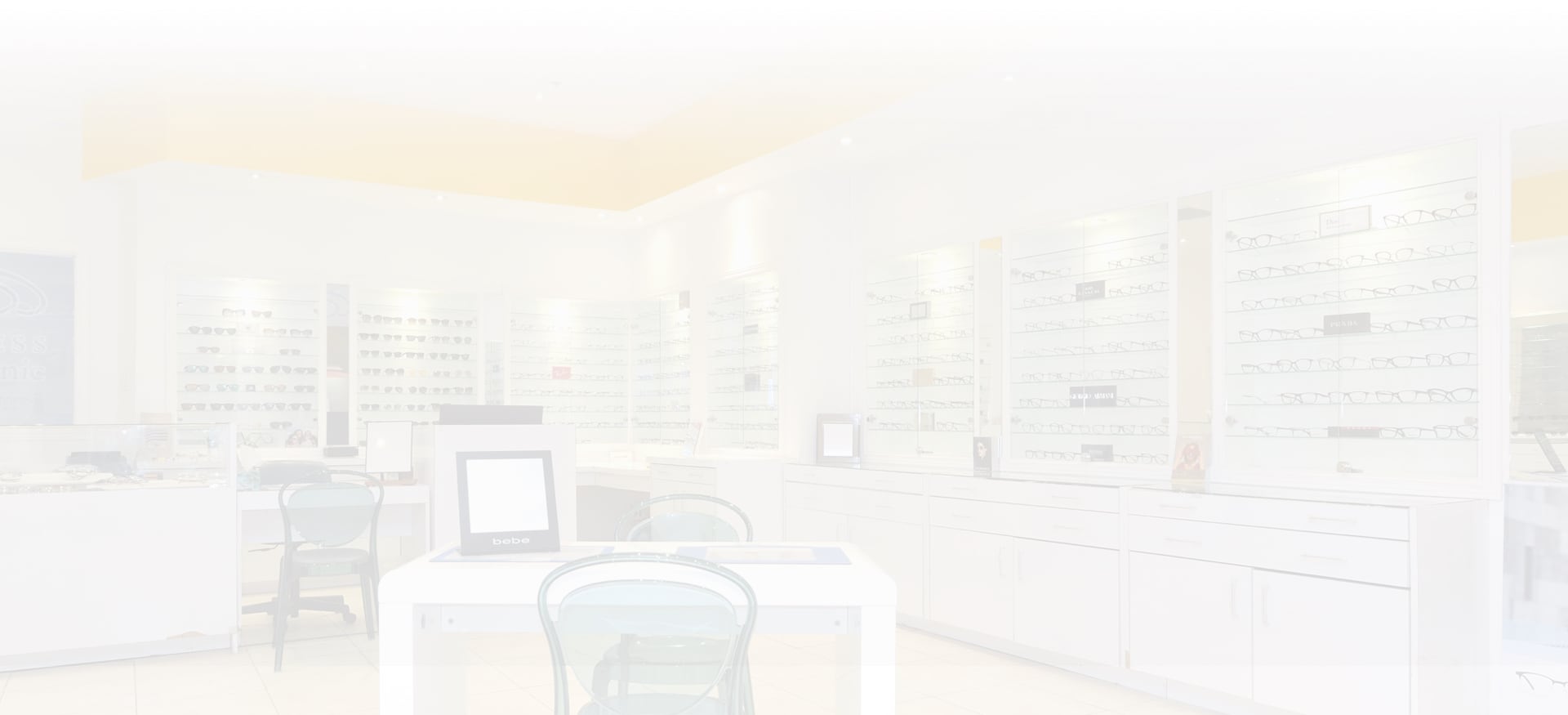
Our Location
Empress Eye Clinic
5095 Yonge Street, Unit B6
North York, Ontario
M2N 6Z4
Located at Empress Walk Mall at the corner of Yonge and Empress Avenue. Near Yonge and Sheppard and Yonge and Finch. We serve patients from North York, Willowdale, Thornhill, Richmond Hill, Bayview Village, Markham, Yonge- Eglinton, Lawrence Park, York Mills, and the Greater Toronto Area (GTA)
Our office is directly accessible by the Yonge-University Subway from North York Subway Station. It is also easily accessible by vehicle from Hwy 401
Address
- 5095 Yonge Street Unit B6
- North York, ON M2N 6Z4
Contact Information
- Phone: 416-223-4500
- Fax: 647-343-0347
- Email: info@empresseyeclinic.com
Hours of Operation
| Monday | 10:00 AM – 07:00 PM |
| Tuesday | 11:00 AM – 07:00 PM |
| Wednesday | 10:00 AM – 07:00 PM |
| Thursday | 10:00 AM – 06:00 PM |
| Friday | 10:00 AM – 07:00 PM |
| Saturday | 10:00 AM – 05:00 PM |
| Sunday | closed |
Some of Our Services
Ask Us About Direct Insurance Billing
Our Brands

